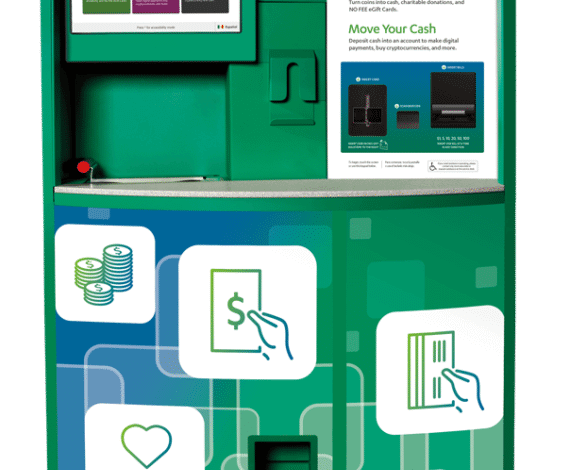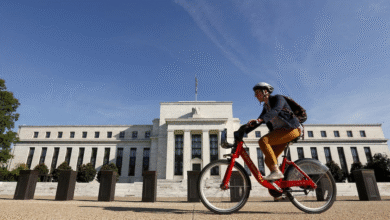Coinme Bitcoin ATM Penalty: $300K Fine Imposed by Regulators

The recent ruling against Coinme regarding the Bitcoin ATM penalty has sent ripples throughout the cryptocurrency community. This prominent Bitcoin ATM operator faced a hefty $300,000 penalty imposed by California regulators for violations of new digital asset compliance laws. Specifically, these violations included allowing transactions that exceeded the legal daily limit of $1,000 and failing to provide proper transaction disclosures on receipts. As the crypto landscape becomes increasingly regulated, Coinme’s case highlights the importance of adhering to California crypto regulations, which aim to protect consumers and maintain market integrity. For enthusiasts and investors alike, Coinme news serves as a stark reminder of the potential consequences of non-compliance in the rapidly evolving world of digital assets.
In the ever-changing realm of cryptocurrency, the term “Bitcoin kiosk infractions” is taking center stage, particularly in light of the recent penalties faced by leading operators like Coinme. This incident not only underscores the complexities associated with operating automated machines for digital currency transactions but also emphasizes the strict regulations imposed by state authorities, especially in California. Consumers engaging with these digital asset terminals are now more aware of compliance requirements as regulators intensify their oversight on ATM violation penalties. As the demand for bitcoin ATMs continues to grow, operators must remain vigilant to avoid the pitfalls of regulatory non-compliance and to protect their customers. The implications of this situation extend beyond just financial repercussions, influencing the broader landscape of cryptocurrency operations.
Coinme Bitcoin ATM Penalty: Understanding the Implications
The recent penalty imposed on Coinme, totaling $300,000, reflects the increasing scrutiny of Bitcoin ATM operators under California’s new digital asset laws. Coinme’s practices, which reportedly allowed customers to exceed the legal transaction limit of $1,000 per day, highlight the importance of regulatory compliance within the cryptocurrency space. As the state enforces stricter regulations, this incident serves as a critical reminder for other operators to adhere closely to compliance protocols to avoid similar penalties.
In addition to the financial repercussions, Coinme must also implement significant operational changes, including regular compliance reporting to state regulators. This decision not only impacts Coinme but also rings alarm bells for all Bitcoin ATM operators in California, indicating that non-compliance will not be tolerated. As the digital asset landscape matures, the focus on compliance underscores the necessity for all operators to stay informed about local regulations regarding ATM operations.
California’s Evolving Crypto Regulations and Impact on Bitcoin ATMs
California’s regulatory framework for cryptocurrencies is evolving rapidly, particularly concerning Bitcoin ATMs, which serve as crucial access points for consumers wishing to engage with digital assets. The enforcement actions against companies like Coinme are part of a broader initiative to ensure that Bitcoin ATMs operate within legal boundaries, specifically designed to protect consumers from fraud and abuse. These regulations not only regulate transactions but also emphasize transparency in reporting and operational integrity.
With the state government tightening its grip on cryptocurrency operations, Bitcoin ATM providers must now navigate a complex landscape of compliance requirements. These rules include mandatory disclosures, daily transaction limits, and consumer protection measures. As a response to evolving regulations, many operators are reassessing their business practices and compliance measures to align with California’s digital financial asset laws, aiming to mitigate the risk of penalties and maintain consumer trust.
Understanding Digital Asset Compliance in the Bitcoin ATM Market
Digital asset compliance is becoming increasingly crucial in the Bitcoin ATM market, particularly in light of recent enforcement actions like those against Coinme. Compliance not only relates to adhering to local laws but also encompasses broader operational standards that ensure consumer safety and protect against illicit activities. For ATM operators, this means that maintaining rigorous compliance programs and staying updated on regulatory changes must be priority number one to thrive in a shifting regulatory landscape.
Moreover, the focus on compliance promotes a more transparent and accountable environment for consumers engaging with cryptocurrency through ATMs. As regulations become more stringent, operators who prioritize compliance are likely to benefit from a stronger market reputation. By investing in proper training for employees and auditing practices, ATM operators can not only avoid penalties but also reinforce consumer confidence in their services, contributing positively to the overall ecosystem of digital asset transactions.
Penalties for Non-Compliance: Consequences for Bitcoin ATM Operators
The $300,000 penalty imposed on Coinme illustrates the serious financial consequences that await Bitcoin ATM operators who fail to comply with regulatory standards. Such penalties can be crippling for younger or smaller companies operating in the cryptocurrency space, highlighting the need for robust compliance frameworks. Failure to adhere to transaction limits or operational transparency can lead not only to financial loss but also significant reputational damage.
In addition to financial implications, non-compliance can lead to increased scrutiny from regulatory bodies, making future operations more challenging. This ripple effect in California’s crypto landscape necessitates that all Bitcoin ATM operators invest in compliance mechanisms and adhere to best practices. The penalties serve as a wake-up call, urging all participants in the market to prioritize compliance not just to avoid fines but to contribute to a healthier and more trustworthy cryptocurrency ecosystem.
The Role of Bitcoin ATMs Amid California’s Crypto Regulations
Bitcoin ATMs play an essential role in broadening access to cryptocurrency, allowing users to easily buy and sell digital assets. However, as California continues to update its regulatory landscape, these machines are also becoming focal points for compliance scrutiny. The recent penalties levied against operators like Coinme illustrate that with increased access comes increased responsibility to adhere to laws designed to protect consumers and the integrity of the financial system.
Operators must now ensure their machines are compliant with legal standards, including limits on transactions and transparency in exchanges. This creates a dual challenge: while they strive to provide user-friendly access to Bitcoin and other cryptocurrencies, they must also navigate complex regulatory requirements. Ultimately, this environment pushes for innovation and adaptation within the ATM sector, as operators seek to balance operational efficiency with compliance.
The Consequences of Violating ATM Regulations
Violating Bitcoin ATM regulations can lead to significant consequences, as evidenced by Coinme’s recent $300,000 penalty. Such violations, including exceeding daily transaction limits and failing to provide necessary disclosures, lead regulators to take action that can completely alter the business landscape for ATM operators. Companies must prioritize understanding the implications of these violations, not just from a financial standpoint but also regarding operational continuity.
The fallout from these penalties highlights a critical need for Bitcoin ATM operators to engage deeply with compliance best practices. By proactively addressing potential violations before they can escalate into regulatory actions, operators not only save themselves from hefty fines but also cultivate a trustworthy relationship with both regulators and consumers. This proactive measures set the foundation for sustainable business practices in the emerging cryptocurrency landscape.
Navigating California’s Regulation Landscape for Bitcoin ATMs
Navigating California’s regulatory landscape for Bitcoin ATMs is becoming increasingly complex due to evolving laws concerning digital assets. Operators must be well-informed about the requirements laid out by the California Department of Financial Protection and Innovation (DFPI) to ensure compliance and avoid penalties like those imposed on Coinme. This complexity necessitates thorough training and operational policies that prioritize adherence to the law.
For many Bitcoin ATM operators, staying updated on California crypto regulations means regularly revising their compliance procedures to meet new regulatory standards. As regulations change, frequent communication with legal experts and participation in industry forums can help operators understand the landscape better and adapt more swiftly. Not only does this enhance compliance, but it also encourages positive industry practices that benefit all stakeholders in the crypto market.
Impacts on Consumer Trust with Bitcoin ATMs in California
Consumer trust is a vital aspect of the Bitcoin ATM market, particularly following regulatory decisions like the one against Coinme. As operators face penalties for non-compliance, the question of trust inevitably arises. Consumers must feel confident that the ATMs they use are safe, reliable, and adhere to legal standards protecting their investments. Trust in Bitcoin ATMs can be significantly influenced by companies’ willingness to comply with regulatory standards.
Building and maintaining consumer trust requires transparency and accountability from ATM operators. By openly communicating compliance efforts and demonstrating a commitment to adhering to state regulations, operators can reassure users about their legitimacy. As the regulatory landscape evolves, fostering trust will be a priority for operators looking to sustain and expand their user base in a competitive market.
The Future of Bitcoin ATMs in Light of Regulation Changes
The future of Bitcoin ATMs appears to be intertwined with ongoing regulatory changes, particularly in progressive states like California. As laws governing cryptocurrency and digital assets evolve, ATM operators will need to adapt their practices to align with new compliance requirements. This evolution calls for innovation and flexibility from operators, who must find ways to streamline compliance while still providing user-friendly access to cryptocurrencies.
Operators who embrace regulatory changes as an opportunity for growth may find themselves at a competitive advantage in the Bitcoin ATM market. By integrating compliance into their business strategies and adopting advanced technologies that facilitate reporting and transparency, operators can enhance their legitimacy. Furthermore, a commitment to adhering to regulations contributes to the overall maturation and stability of the cryptocurrency space as it continues to gain mainstream acceptance.
Frequently Asked Questions
What led to the Coinme Bitcoin ATM penalty in California?
The Coinme Bitcoin ATM penalty was imposed by California regulators after an investigation revealed violations of the Digital Financial Assets Law and the California Consumer Financial Protection Law. Coinme allowed customers to exceed the legal daily transaction limit of $1,000 and failed to include the required exchange name on transaction receipts.
How much is the Coinme Bitcoin ATM penalty in total?
The total Coinme Bitcoin ATM penalty amounts to $300,000, which includes a $51,700 restitution to affected California consumers and additional administrative penalties. Coinme must also pay $248,300 in staged installments within specified timeframes.
What compliance measures must Coinme follow after the Bitcoin ATM penalty?
Following the Bitcoin ATM penalty, Coinme is mandated to implement new policy changes, submit compliance reports every 60 days for one year, and cease all cited violations to comply with California’s digital asset regulations.
Can Coinme appeal the Bitcoin ATM penalty decision?
Coinme waived its rights to a hearing and accepted the terms of the penalty without admitting liability, meaning they will not appeal the Bitcoin ATM penalty decision and must adhere to the compliance requirements set forth by California regulators.
What are the implications of the Coinme Bitcoin ATM penalty for other crypto businesses?
The Coinme Bitcoin ATM penalty serves as a cautionary tale for other crypto businesses, highlighting the importance of adhering to California crypto regulations and digital asset compliance to avoid costly administrative penalties and legal issues.
How does the Coinme Bitcoin ATM penalty affect consumers?
The Coinme Bitcoin ATM penalty requires the company to pay restitution of $51,700 to specific consumers in California who were affected by the violations, ensuring that they are compensated for being allowed to transact beyond the legal daily limit.
What does the Coinme Bitcoin ATM penalty mean for future regulatory actions in California?
The Coinme Bitcoin ATM penalty indicates a stricter approach by California regulators towards digital asset compliance, potentially leading to increased scrutiny and enforcement actions against other crypto operators to ensure compliance with existing laws.
What was the reason for the specific dollar amounts in the Coinme Bitcoin ATM penalty?
The specific dollar amounts in the Coinme Bitcoin ATM penalty are derived from the restitution owed to consumers for the unauthorized transactions and the administrative penalties calculated based on the severity and nature of the violations of California’s digital asset laws.
| Key Point | Details |
|---|---|
| Penalty Amount | $300,000 total penalty, with $51,700 as restitution. |
| Reason for Penalty | Violations of the Digital Financial Assets Law and the California Consumer Financial Protection Law. |
| Compliance Requirements | Must submit compliance reports every 60 days, implement policy changes, and cease cited violations. |
| Payment Schedule | $48,300 within 30 days, $100,000 within 60 days, and another $100,000 within 90 days. |
| Investigation Authority | Conducted by the California Department of Financial Protection and Innovation (DFPI). |
| Waiver of Liability | Coinme accepted the terms without admitting liability. |
Summary
Coinme Bitcoin ATM Penalty highlights the serious repercussions that can arise from non-compliance with state regulations. The hefty $300,000 penalty imposed on Coinme reflects California’s strict enforcement of its Digital Financial Assets Law (DFAL) and consumer protection regulations. This situation serves as a critical reminder for cryptocurrency businesses to adhere closely to legal limits and operational guidelines, ensuring consumer trust and regulatory compliance to avoid costly penalties.



